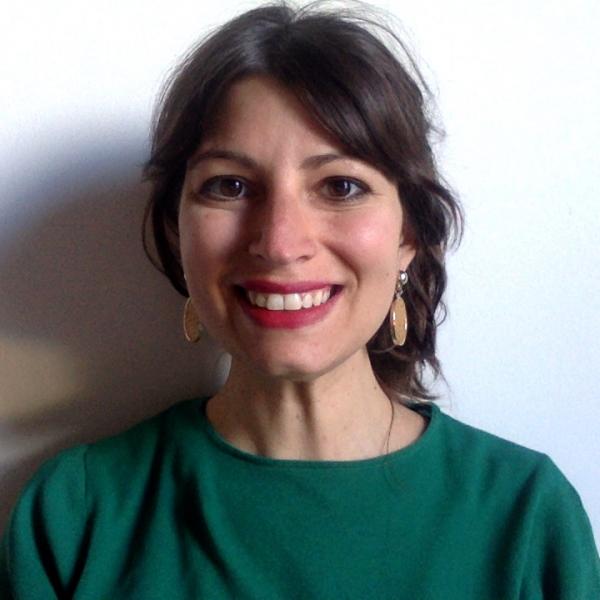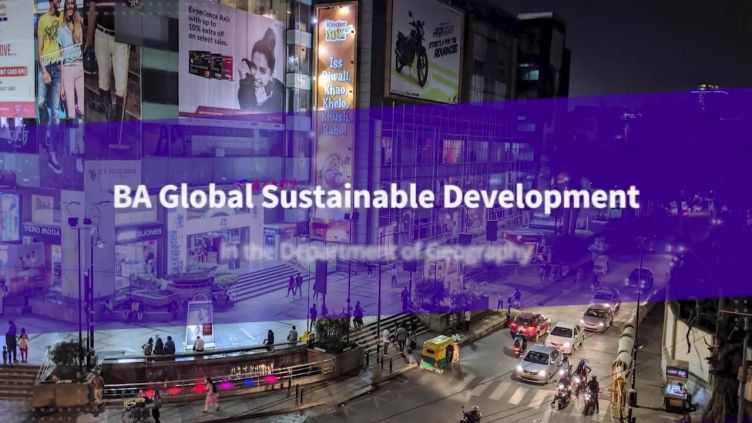Dr Stephanie Butcher
School of Geography and Planning
Senior Lecturer in Global Sustainable Development


+44 114 222 7958
Full contact details
School of Geography and Planning
F04
Geography and Planning Building
Winter Street
Sheffield
S3 7ND
- Profile
-
Stephanie is a Senior Lecturer in Global Sustainable Development in the School of Geography and Planning. Prior to this, she was a Postdoctoral Research Fellow at the University of Melbourne, with the UKRI “Knowledge in Action for Urban Equality” programme (2018-2022), focusing on ‘knowledge translation’- tracing how diverse knowledge(s) produced by grassroots activists can inform local-level policy and planning, as well global agendas such as the SDGs, and how policy and planning can better respond to everyday conditions of inequalities.
Her PhD was completed with the Development Planning Unit, at the University College London, and focused on the 'everyday politics' of water infrastructure for informal settlement residents in Kathmandu, Nepal. Informed by participatory action-research, it examined the micro-politics of how gender, tenure relations, and ethnicity shaped how diverse residents interacted with the socio-technical aspects of infrastructure, impacting a sense of citizenship.
- Research interests
-
Research interests focus on citizen participation in urban governance, gender and diversity, and urban inequalities (especially housing and infrastructure). As a part of this work, I have partnered with grassroots organisations, NGOs, and/or research institutes in cities in Nepal, Kenya, Tanzania, Sri Lanka, Sierra Leone and the UK to support community-driven processes of development. I am particularly interested in the use of participatory methodologies, the ethics of action-research, and critical pedagogies.
Current research and teaching focuses on three interconnected strands:
1. Global Development & Social Justice: Examining the production of inequalities within housing, infrastructural, and environmental policies, planning, and practice, and the conceptual implications of engaging theoretical frames such as social justice and citizenship in rethinking development.
2. Knowledge and Ethics: Examining the epistemologies that underpin how we think about contested concepts such as sustainability and resilience, and the contribution of especially Feminist and Southern epistemologies in building knowledge which can address global challenges.
3. Social Mobilisation and Action: Examining the collective practices through which peripheralized groups are mobilising against conditions of inequalities, and the possibilities for how these practices might rupture or renegotiate capitalist/colonial/patriarchal structures which are driving uneven processes of development.
- Publications
-
Journal articles
- Towards an ‘Ethics of Evidence’: Unsettling knowledge inequalities in urban development practice. World Development Perspectives, 38, 100689-100689.


- Pathways to urban equality: trans-local solidarities within the Asian Coalition for Housing Rights. Environment & Urbanization, 37(1), 76-94. View this article in WRRO


- Epistemic justice and the university: reclaiming the academy for emancipatory urban praxis. International Journal of Urban and Regional Research, 49(2), 452-467. View this article in WRRO


- Development beyond 2030: more collaboration, less competition?. International Development Planning Review, 46(2), 227-242. View this article in WRRO


- Editorial: Addressing urban inequalities II: discursive and material practices through scale. Environment and Urbanization, 35(1), 3-11.


- Editorial: Addressing urban inequalities: co-creating pathways through research and practice. Environment and Urbanization, 34(2), 269-277. View this article in WRRO


- “Emancipatory circuits of knowledge” for urban equality: experiences from Havana, Freetown, and Asia. Urban Planning, 7(3), 206-218.


- The “slow anatomy of change”: urban knowledge trajectories towards an inclusive settlement upgrading agenda in Freetown, Sierra Leone. Environment and Urbanization, 34(2), 294-312.


- Urban equality and the SDGs: three provocations for a relational agenda. International Development Planning Review, 44(1), 13-32.


- Leaving no urban citizens behind: An urban equality framework for deploying the sustainable development goals. One Earth, 4(11), 1548-1556.


- DIFFERENTIATED CITIZENSHIP: The Everyday Politics of the Urban Poor in Kathmandu, Nepal. International Journal of Urban and Regional Research, 45(6), 948-963.


- Mobilising urban knowledge in an infodemic: Urban observatories, sustainable development and the COVID-19 crisis. World Development, 140, 105295-105295.


- Research solidarity? Navigating feminist ethics in participatory action-research in Kathmandu, Nepal. Gender, Place & Culture, 28(4), 497-518.


- Beyond one-dimensional representation: challenges for neighbourhood planning in socially diverse urban settlements in Kisumu, Kenya. International Development Planning Review, 38(3), 275-295.


- Insurgent citizenship practices: The case ofMuungano wa Wanavijijiin Nairobi, Kenya. City, 18(2), 119-133.


Book chapters
- Infrastructural Relations: Participation and Diversity in Community- Based Water Management in Kathmandu, Nepal In Rigon A & Castan Broto V (Ed.), Inclusive Urban Development in the Global South Intersectionality, Inequalities, and Community Routledge


- Strategic Upgrading: Lessons from International Critical Practices In Cirolia L, Görgens T, van Donk M, Smit W & Drimie S (Ed.), Upgrading Informal Settlements in South Africa Pursuing a partnership-based approach Juta and Company (Pty) Ltd


- The ‘Everyday Water Practices’ of the Urban Poor in Kisumu, Kenya In Wilson Center (Ed.), In Urban Solutions: Metropolitan Approaches, Innovation in Urban Water and Sanitation, and Inclusive Smart Cities: A New Generation of Ideas


- Towards an ‘Ethics of Evidence’: Unsettling knowledge inequalities in urban development practice. World Development Perspectives, 38, 100689-100689.

